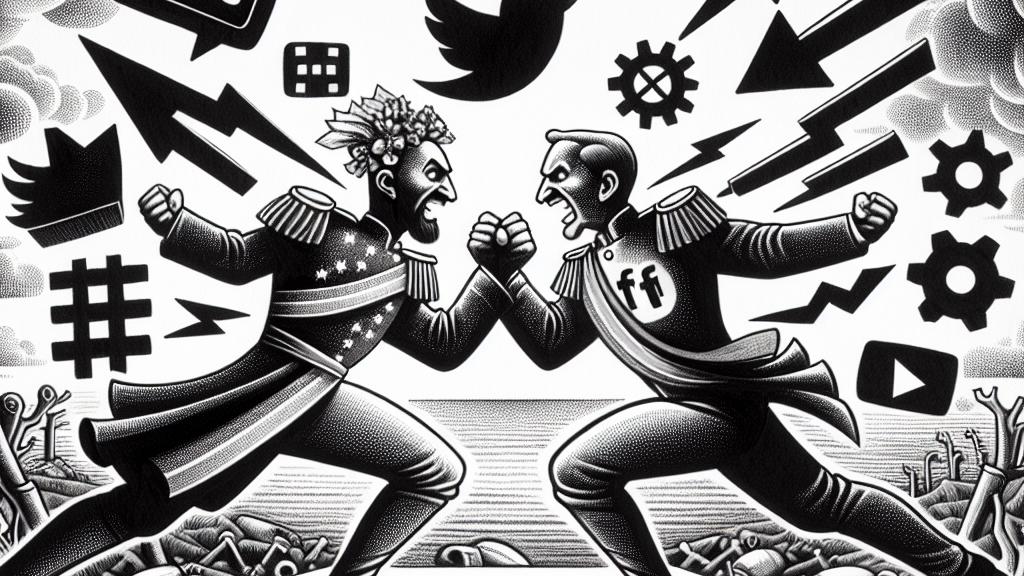Maduro vs. Musk: The Social Media Showdown in Venezuela!
Overview
- Venezuelan President Maduro suspends X access for 10 days after accusations against Elon Musk.
- Escalating tensions highlight the intersection of politics and social media in authoritarian regimes.
- The incident raises critical concerns about free speech, censorship, and governance in Venezuela.

Context of the Suspension
On August 9, 2024, President Nicolás Maduro of Venezuela declared a ten-day suspension of access to the social media platform X, also known as Twitter. This drastic measure follows an intensely contested presidential election held on July 28, where Maduro was declared the victor amidst substantial allegations of irregularities by his opponents. Maduro accused Elon Musk, the platform’s owner, of inciting hatred against his government. His decision not only reflects frustration with external criticisms but also demonstrates a broader tactic to quell dissent by controlling digital narratives within Venezuela. The situation serves as a vivid illustration of how social media can become a battleground for opposing political forces.
The Exchange Between Maduro and Musk
The conflict escalated significantly as Musk responded to Maduro’s accusations by labeling him a 'dictator' and asserting that the election results were fraudulent. This public exchange on X captivates a global audience, highlighting the unpredictable nature of political discourse facilitated by social media. Musk's comments resonate within the global landscape, drawing attention to the dynamics of freedom of expression that starkly contrast with the oppressive measures characteristic of Maduro's regime. This incident exemplifies how various stakeholders use social media platforms to advance their political narratives, particularly in regions where press freedom is under siege.
Implications for Free Speech and Government Control
Maduro’s decision to suspend access to X has wide-reaching implications for free speech in Venezuela, a country known for its history of media control and censorship. The Venezuelan government has previously utilized crises, such as those stemming from economic hardships and the COVID-19 pandemic, to justify strict measures aimed at curtailing dissent. This incident raises important questions regarding the future of democratic processes and civil liberties in Venezuela. It points to a pressing need for reform and a more robust defense of freedom of expression, showcasing the role social media plays in facilitating political engagement and activism in authoritarian contexts. The outcome of this showdown may influence international perspectives on governance and human rights in Venezuela.

Loading...